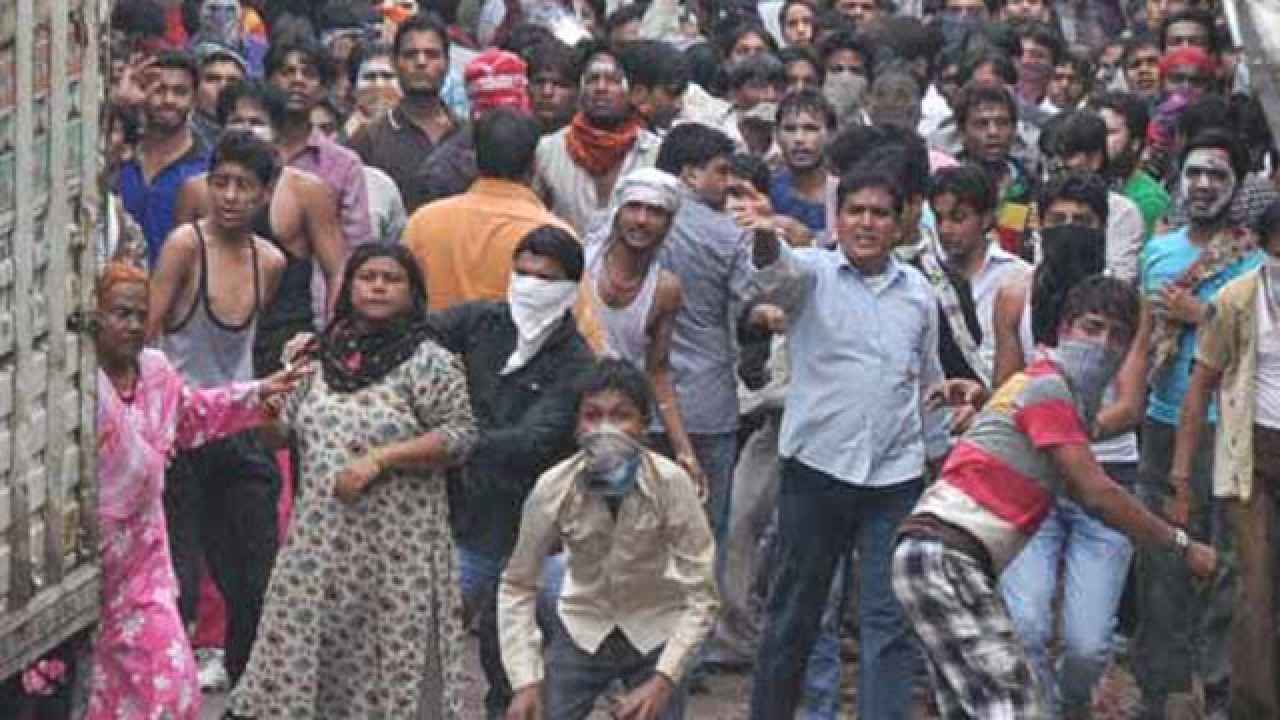
The report of the Justice Vishnu Sahai commission probing the Muzaffarnagar riots has predictably invited a barrage of criticism for failing to hold the ruling establishment responsible for the massive outbreak of violence. The report is particularly scathing on the police and district administration in Muzaffarnagar for intelligence failures and actions that led to the escalation of violence between Hindu and Muslim communities in July-August 2013.
But the report does not go far enough to unravel the political machinations that facilitated and orchestrated the riots. The lone politician who has been indicted is BJP MLA Sangeet Som who has been accused of sharing a video shot in Afghanistan in which two youths are seen to be lynched. This video was used to inflame passions after the murder of two Hindu youth in Kawal. However, Som is already facing legal charges brought by the UP Police for his role in this episode and therefore the Sahai commission’s labours on this count will hardly pass muster.
Among those implicated are the then district magistrate Raj Kaushal Sharma and SSP Satish Chandra Dubey. Sharma failed to ensure the videographing of proceedings of a mahapanchayat where inflammatory speeches were made. Dubey was accused of dereliction of duty and failure to contain the riots. But it was the state government which transferred Sharma and Dubey to Muzaffarnagar when the situation was getting out of hand. It can be argued that this gave neither officer adequate time to settle into office or be prepared for tough action against the rioters. Clearly, the government has to explain what necessitated the transferring out of the previous DM Surendra Singh and SSP Manzil Saini at such a crucial time. The Samajwadi Party government’s role, especially senior leader Azam Khan, had come under the scanner for the transfer of these two officers after the detention and subsequent release of eight Muslim men allegedly involved in the murder of the two Hindu youth at Kawal.
Commissions of inquiry probing riots often find evidence of dereliction of duty against officials because they are held responsible for maintaining law and order. However, the role of the political class is more difficult to flesh out unless there is evidence of direct incitement. The narrative shaped by the BJP since the Muzaffarnagar riots accused the SP government of undue favours to the Muslim community. Similarly, the BJP’s opponents have accused the party of fanning the passions that led to the riots. With neither contention being borne out by the Vishnu Sahai commission, it is hardly surprising that UP’s top political parties — BSP, BJP and Congress — have slammed the report for their own reasons.
The Sahai Commission does take note of a “perception” that the “administration and the government were pro-Muslim and the former was acting under the influence of the latter. In the 2014 elections, the BJP reaped rich electoral rewards by harping on this perception. The SP, which rode to power on a Yadav-Muslim social compact, has been unfazed by such perceptions. Irrespective of perception, the fact is that there is immense polarisation on the ground in much of Uttar Pradesh, especially Western UP. Though the Sahai Commission has refrained from saying so, the moral and political responsibility for the polarised state of affairs lies with the state government. With UP headed for the polls next year, the echoes of the Muzaffarnagar riots, and not the developmental agenda, will in all likelihood shape the electoral discourse. The Vishnu Sahai commission report is a missed opportunity to achieve closure.